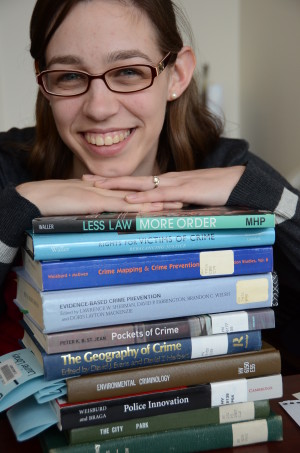Voices against Gendered Violence: A Blog in Quotations
Never have I seen such a beautiful collection of voices, all unique, and yet all singing the same tune. The Everyday: Freedom from Gendered Violence Symposium put on by the Social Innovation Research Group, and brilliantly detailed by Jay Harrison here, was a phenomenal representation of the intersection of research, arts, and community work. While the Symposium had a particular focus on the university experience, its messages are equally applicable in our neighbourhoods and communities as we think about crime prevention and smart approaches to the gendered violence that occurs in those spaces.
I don’t think I could ever do justice to the amazing topics that were discussed – responding to disclosure, the particular experiences of gendered violence faced by racialized and LGBTQ students, engaging men in prevention, and more. So, I thought the best way was to provide some insight from the speakers themselves:
“What does it mean to be safe?” –Dr. Jenn Root
I sat and thought, ‘good question!’ How can we talk about safety without first talking about what that means? Discussions of violence and crime prevention should always start at the roots.
“Public space is not equal for everyone.” –Tatyana Fazlalizadeh
This rang true for me. How many times have I called a friend or family member to pick me up because I didn’t want to walk alone?
“Did that really just happen?” –Dr. Michael Woodford
Dr. Woodford was speaking about the slurs and comments made to LGBTQ students. But for me, I was struck by the thought of how often we doubt ourselves, as well as our friends and our families when they tell us about something seemingly “minor” is said to them: ‘Oh come on, it’s not so bad…’
“Street Harassment is abuse.” –Tatyana Fazlalizadeh
Tatyana amazed me with this beautiful comparison of street harassment to domestic violence: if a man was yelling derogatory names at his wife, we would call it abuse. When women have cat-calls yelled at them from across the street, however, we tend to brush it off and ignore it.
“The kind of terrorism I want to talk about in this country is domestic violence.” –Judah Oudshoorn
While the media and our governments continue to feed us horrible stories of the atrocities occurring under the umbrella of terrorism, sometimes we forget about the atrocities happening much closer to home – maybe in our homes, maybe in our neighbour’s home.
“Sexual violence is a strategy of war – it is not just against the women, but also the community – it is an attempt to demoralize the community.” –Dr. Eliana Suarez
At the Crime Prevention Council, we often talk about the role of community as a building block for crime prevention. If sexual violence is designed to demoralize a community, then we, as that community, must take a leading role in preventing it.
“Either you’re violent, silent, or creating meaningful change. And if you’re silent, you’re violent.” –Judah Oudshoorn
What a powerful statement. I know which role I choose to play.
“Women are not just resilient, they are resistant – they attempt to change their circumstance.” –Dr. Eliana Suarez
“Maybe there is more than one way to be a man.” –Stephen Soucie
I felt these two quotes belonged together. Discussions around gendered violence often leave me feeling sad and hopeless. But these two spoke of hope, optimism, and change for both men and women.
“It is easier to build stronger children than to fix broken men.” –Stephen Soucie
Again, I felt another ray of hope. Through my research at the Crime Prevention Council, I have learned that early interventions have astonishing success in reducing rates of crime. This is where I think we should be investing our time, energy, and dollars.
“Compliance is important, but compassion is more important.” –David McMurray
An important reminder to wrap things up: while being “tough on crime” continues to get lots of media attention, we would be wise to look at the evidence base and the fact that the majority of “tough on crime” approaches do nothing to reduce crime. Early intervention, prevention that is proven to work, and renewed focus on humane approaches to rehabilitation and reintegration, would go much further toward reducing incidents of crime and victimization.
There were a myriad of other speakers who had insightful comments, but unfortunately, I am only able to present a small portion here. The passion in the room from each and every speaker was evident – from the researchers to the artists to the community workers. They all shared with us their struggles, and yet I came out the other side feeling hopeful and fulfilled. If they can commit themselves to this struggle, they must feel that it is important and that change can be made. As I move forward in working on my Master of Social Work thesis next year, which touches on this topic, I feel like maybe I can contribute a small portion to this struggle. Maybe, someday, we could live in a world where everyday, we were free from gendered violence.
“The struggle is real… the struggle continues” –Janice Lee
How are YOU contributing to the struggle?

Eleanor McGrath
Author: Eleanor is a Master of Social Work student at Wilfrid Laurier University. She is completing her first placement at the Waterloo Region Crime Prevention Council, working on a narrative literature review of how crime mapping can be used to implement community-based prevention initiatives. Her favourite hobbies are laughing, rock climbing, and travelling.
